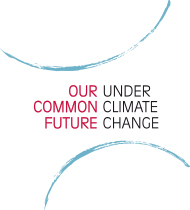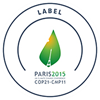Bringing together the latest knowledge from both natural and social sciences, this day addresses the cross-cutting issues related to observed changes in the climate system. It explores drivers and impacts, including GHG emissions, climate variability, extreme events, and physical-ecological-social interactions, connecting both advances and gaps in knowledge across sectors and regions.
Themes for Parallel Sessions
- Interdisciplinary Studies of Past Environments
- From past to Future Climate Changes
- Climatic Variability
- Climate Information & Services
- Climate Observing Systems
- Atmosphere-Ocean Interface
- Sea Level Rise and Ice Sheets
- Stratosphere and Middle Atmosphere
- Atmospheric Water
- Ocean Observation
- Tropical and Southern Oceans
- The Arctic Climate System
- Climate Extremes
- Global Carbon and GHG Budgets
- GHG Monitoring
- Biogeochemical Feedbacks
- Attribution of Extreme Events
- Extreme Hydrological Events
- Freshwater Resources
- Air Quality and Health
- Global Warming Hiatus
- Climate Change Education



